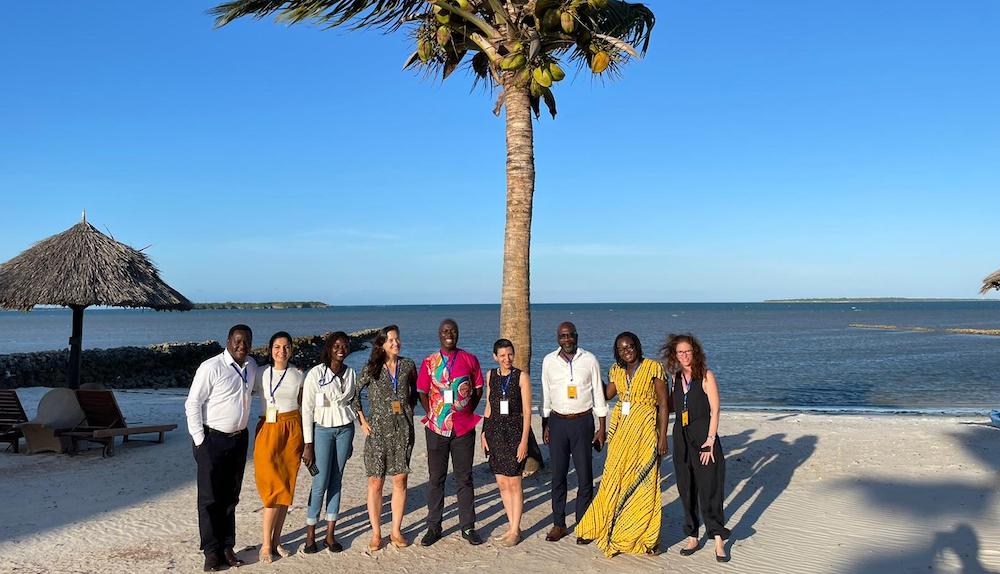ImpactAlpha, June 13 – Who knows best the needs of a community but members of the community itself? First-time fund managers who understand the needs of local small businesses are an under-appreciated resource for investors seeking to nurture inclusive development.
Also under-appreciated is how many barriers they must overcome to raise the capital to meet those small-business needs.
The launch of Nyala Venture at last week’s convening of the Collaborative for Frontier Finance in Dar es Salaam is part of a renewed effort to overcome biases against investing in local capital providers, first-time managers, small-business lenders – and in many emerging markets themselves.
The new fund of funds, seeded with $10 million by FSD Africa Investments, aims to support a half-dozen first time fund managers in raising capital, building track-records and catalyzing more institutional and commercial capital. Nyala Venture will focus particularly on local fund managers supporting women-led businesses. Nyala Venture will have the ability to invest a mix of debt and equity.
“Alternative local capital providers have better networks and embedded boots on the ground, enabling them to play a huge role in supporting and growing local businesses,” said Anne-Marie Chidzero of FSDAI. The U.K. government-backed investment firm is investing in Nyala Venture to “fast-track local capital providers and share lessons with the larger investment community.”
Cardano Development and Total Impact Capital Europe, which will manage the fund, aim to raise an additional $50 to $75 million.
Funding the funders
Nyala Venture comes out of the work of the Collaborative for Frontier Finance, which represents dozens of first-time and emerging fund managers in Africa, the Middle East and South Asia. (CFF is backed by the Argidius, MacArthur and Small foundations, Omidyar Network, the World Bank and the governments of Australia and the Netherlands.)
The dozens of fund managers in the network are collectively trying to raise more than $1 billion through debt, equity, mezzanine and other creative capital structures. Only 30% of the funds have reached a first close of their fundraising.
“These capital managers specifically and uniquely prioritize financing small and growing enterprises,” CFF’s Drew von Glahn explained at the convening in Dar es Salaam. The financing needs of such businesses, he said, “are not served appropriately by local banks and multinational financial institutions.”
At the same time, “these local capital managers themselves lack the appropriate resources from government agencies and development institutions,” von Glahn said.
Missing middle
Larger investors, particularly development finance institutions, or DFIs, lack the understanding and flexibility to invest in small funds, instead favoring grant and aid-based initiatives or large venture capital and private equity funds, said local capital providers at the CFF’s gathering.
“This is about urgency,” said Evelyne Dioh of WIC Capital, a women-focused investment fund in Senegal. “We are creating jobs, we are closing the gender gap.” The flow of capital into funds on the ground is “taking too long,” she said.
DFI representatives largely acknowledged that most local fund managers were too small, too structurally complicated or lacking in track-record for investment.
One told fund early-fund managers at the convening, “You have to come back in a few years.”
Building opportunities for larger funds “has to start from somewhere,” noted Lelemba Phiri of South Africa-based Africa Trust Group. “There seems to be a realization of the systemic bias that lies within the systems of money,” Phiri added. “Although there’s this realization, there’s a lack of bravery for creating real change. Somebody’s got to put the money where their mouth is to start to create that change.”
Local fund managers need to educate institutional investors about how to take advantage of the opportunities, said Tamara Abdel-Jabar of Jordan-based gender-lens fund Amam Ventures. “Investors don’t know where to put us within their structures. That won’t change unless we work together to share data and have conversations about how things are in our communities and how limited partners can help us.”
Ghana’s impact investing national advisory board is taking the lead on setting up a fund of funds, backed by local pension funds and other institutional investors, to support first-time and early-stage fund managers.
“What is the role of government, community and business leaders in Africa?” asked Lilian Mramba of Grassroots Business Fund. “They should be the ones who feel the greatest sense of urgency because we’re trying to make changes in our communities. We shouldn’t only look at trying to change the mindset of capital coming outside the continent.”
Anoter fund manager noted that investors that purport to be catalytic are not always willing to accept catalytic returns.
“Maybe business as usual can’t continue. There will be things that can make returns, but if you want to do really, really hard stuff, maybe all of us have to sometimes accept less,” added Josh Bicknell of Balloon Ventures. “Are we all willing to accept that and walk that walk?”
Gender lens
Local fund managers—and women fund managers in particular—are deploying a range of creative solutions to get capital into their communities.
Africa Trust Group is piloting a a pay-for-results funding model to enable enable other emerging female fund managers in Africa to build track records with deals.
Seja Kekana of Makoti Kekana Capital is tapping into mining and telecoms companies’ corporate social responsibility budgets in South Africa to commercialize relevant intellectual property and scale-up Black-led businesses in corporate supply chains.
Organizations like WIC Capital and South Africa-based Womvest are leveraging professional women’s individual investing power to get deals done.
New fund managers like Actawa Ventures in Tunisia and Inua Capital in Uganda are partnering with established impact investors like I&P.
“With women-led businesses accounting for about a quarter of enterprises on the continent, we need better and more effective tools to overcome the funding gap they face,” said Jessica Espinosa Trujano of 2X Collaborative.
The 2X Collaborative’s new initiative, 2X Ignite, is fundraising to provide emerging women-led and women-focused funds with working capital, a deal warehousing facility, technical assistance, shared back-office, legal and marketing services, and other resources.











